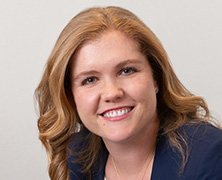Post-Pandemic—the Hard Work Is Only Just Beginning
There is no doubt that the COVID-19 pandemic has revealed fault lines in who our society and our government deem “essential,” valuable, and worthy of health and stability. The disparate impact of COVID on people of color and lower-income communities has shed light on deep inequalities that many Americans have suffered for centuries. While shockwaves from the pandemic will stick with our society for years to come, we also have an opportunity to learn and grow from its revelations. To do this, we have to ask ourselves some hard questions.
First, how do we as individuals and businesses work to see our values reflected in society at large? If we were heartbroken to learn that Americans of color are four to five times more likely to be hospitalized with COVID, what will we do differently to move toward health equity in the United States? How can we use our resources to give underserved communities a fighting shot against future public health crises? And pandemic aside, how do companies retain people from traditionally underprivileged communities and prove they actually value diversity, equity, inclusion, and belonging?
Next, why did women (particularly women of color) leave the workforce in such higher numbers than men? How do we create workplaces and homes where women can continue to excel in their careers during a childcare emergency, and are not forced to choose between being successful at work or at home? Women want to work in an environment where they are respected, appreciated, challenged, and offered equal opportunities. We also want to have a support system, both at home and in the office. Post-pandemic, I hope we continue to see increased flexibility in work schedules and locations to allow parents, women especially, to do both well.
Finally, how do we increase the quality of our personal connections after Zoom is no longer our only means of face time? After the past year, we know our relationships with family, coworkers, and clients are critical to both professional success and overall well-being. Personally, I plan to continue holding frequent videoconferences and calls with my clients, as the shift to remote work has allowed them to feel more connected to their legal teams and their cases. Someone who may not have previously traveled for a hearing can now watch it remotely, see their attorney in action, and hear their adversary’s and the judge’s impressions of the case. That familiarity leads to lawyers and clients working more closely together and feeling like a unified team.
Of course, asking these questions is only the first step. While the pandemic has made it easier to have conversations about what needs to improve, the hard work is only just beginning.







